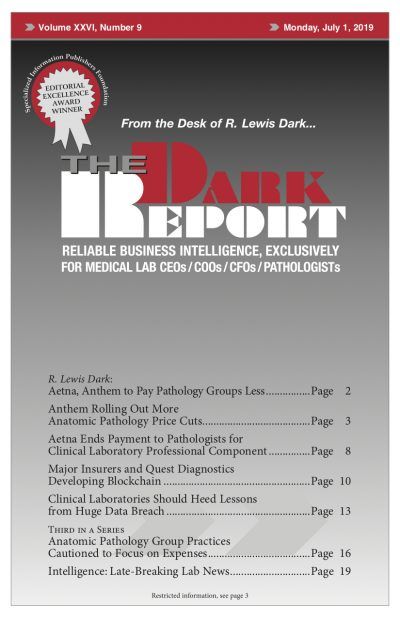CEO SUMMARY: Following news last month about the biggest breach of personal health information in the clinical lab industry, lawyers representing some of the affected patients filed at least 12 class action lawsuits. Federal officials and attorneys general in multiple states also launched investigations. The breach occurred when hackers gained access to the data systems …
Labs Should Heed Lessons from Huge Data Breach Read More »
To access this post, you must purchase The Dark Report.


